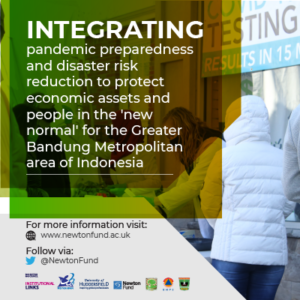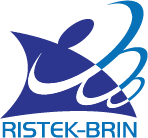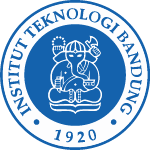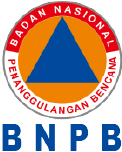COVID 19 LIAISE - Project 02
Integrating pandemic preparedness and disaster risk reduction to protect economic assets and people in the 'new normal' for the Greater Bandung Metropolitan area of Indonesia
Partners
Co-funded by
Newton Fund
The Newton Fund builds outstanding research and innovation partnerships with select countries in Africa, Asia and Latin America to support economic development and social welfare, tackle global challenges and develop talent and careers. The fund is managed by the UK’s Department for Business, Energy and Industrial Strategy (BEIS), and delivered by UK and international partners. UK investment is matched by investment and resources from partner countries.
Website Link: www.newton-gcrf.org
RISTEK-BRIN
Website Link: https://international.ristekbrin.go.id
Delivery Partner
British Council
The British Council builds connections, understanding and trust between people in the UK and other countries through arts and culture, education and the English language. British Council connect the best of the UK with the world and the best of the world with the UK. These connections lead to an understanding of each other’s strengths and of the challenges and values that we share. This builds trust between people in the UK and other nations which endures even when official relations may be strained.
Website Link: www.britishcouncil.org
In Partnership with
Global Disaster Resilience Centre (GDRC) at the University of Huddersfield, UK is a global leader in multi-disciplinary research, education, and advocacy to improve the resilience of nations and communities. What would it be like to live in a world in which government authorities, businesses, communities, and individuals work together to create a society that is able to withstand the effects of unforeseen events and threats? At GDRC, we are working with stakeholders at the global, national, and local level to make this happen. This work includes the support of stakeholders towards implementation of The Sendai Framework for Disaster Risk Reduction 2015-2030.
Our work: Tackles disaster risk factors and scenarios, including emerging climate and disaster risks; Supports action by local communities and authorities; and Supports the interface between policy and science for decision-making. GDRC is a key partner of the UNDRR (UN Office for Disaster Risk Reduction) Making cities resilient campaign and is also a member of the UNHABITAT University network initiative. It is working with its large number of partners to raise awareness and commitment for sustainable development practices that will reduce disaster risk and increase the wellbeing and safety of citizens. Members of GDRC have published collectively more than 400 peer reviewed papers in the field and generated more than £10 million in research income. GDRC has led a large number of research capacity building programmes with a large number of international HEIs focusing on establishing, improving and sustaining research capability and capacity; developing comprehensive and robust plans and sets of activities to support Early Career Researchers and improve mentoring of staff, and supervisory capabilities; supporting the development of research skills; and, promoting international agenda including research collaborations.
GDRC won the Prestigious 2019 Newton Prize. Its winning entry was based on their “Mainstreaming Integrated Disaster Risk Reduction and Climate Change Adaptation into Coastal Urban Agglomeration Policy” project and their new proposal which looks into “Developing and harmonising local tsunami early warning”. We are the winning team amongst 150+ projects. Newton Prize recognises the best research and innovation projects which create an impact socially and economically, between Indonesia and the United Kingdom from 2016 to 2019. Newton Prize is supported by the UK’s Department for Business, Energy, and Industrial Strategy (BEIS), Newton Fund and Global Challenges Research Fund (GCRF). In 2018, GDRC won the UALL International Award for 2018 for the CADRE (Collaborative Action towards Disaster Resilience Education) project. The award was given for the best innovative partnership that created change in an international context and recognises innovative engagement, including partnerships,that create change in an international and transnational context. Criteria for assessment included: Innovation and Creativity, Impact and Transferability.
The University of Huddersfield’s (HUD) roots go back 177 years via the Huddersfield Mechanics’ Institute. Throughout its history the University has been committed to meeting the needs and aspirations of its students. HUD is a successful, popular, and innovative modern University that offers a wide range of education, training and research facilities and we are proud of our achievements. The University has approximately 2500 staff and has a student population of over 18,000 from more than 130 countries undertaking a wide range of courses covering the wealth creating, cultural and social welfare aspects of our economy, and is a growing centre of research and excellence and we always push the boundaries of knowledge. HUD was named Times Higher Education University of the Year in 2014.We are proud to have been recognised as a gold-rated University by the Teaching Excellence Framework (TEF). This framework has been introduced by the Government and aims to recognise and reward excellent learning and teaching. The TEF Panel judged that HUD delivers consistently outstanding teaching, learning and outcomes for its students. It is of the highest quality found in the UK. In 2017, HUD won the first Global Teaching Excellence Award recognising the University’s commitment to world-class teaching and its success in developing students as independent learners and critical thinkers. Figures released by the Higher Education Funding Council for England see the HUD comes top of all the universities in England for the proportion of staff with teaching qualifications. And HUD is the UK’s only university where 100% of permanent teaching staff are Fellows of the Higher Education Academy. HUD has seven Schools and centralised support services for Research and Innovation, Human Resources, Finance and Marketing. HUD has an annual turnover of approximately £150 million and is to be worth £300 million annually to the local economy.
Website Link: www.hud.ac.uk
Website Link:
Ministry of Agrarian and Spatial Planning
Website Link: www.bnpb.go.id
West Java Province Local Disaster Management Organization (BPBD)
Indonesian Disaster Expert Association (IABI)







